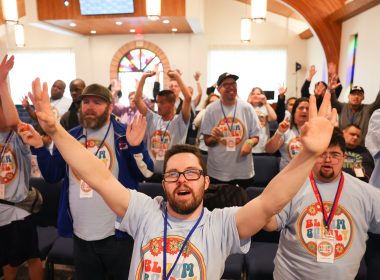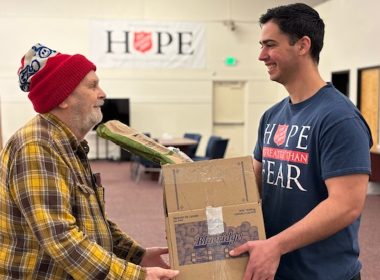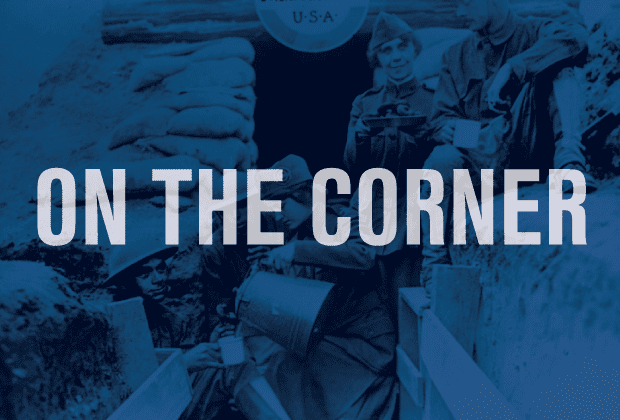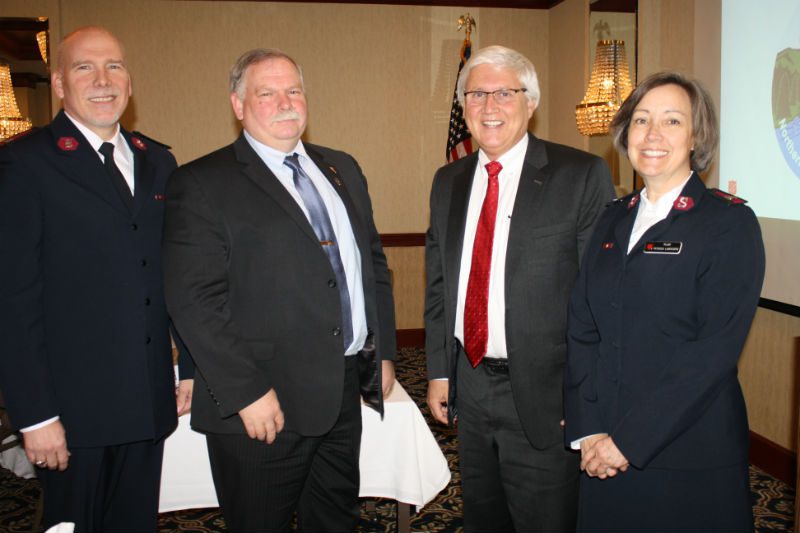An army goes to war
by Robert Docter, Editor-In-Chief –
In the northern hemisphere the vernal equinox has ushered in the beauty of springtime.
Can Easter be far behind?
The wind is softer. The evening chill seems warmer. The occasional sprinkle more welcomed. The emerging buds appear more promising. We attend even more fully to an Earth that calls out for help. God’s creation is in trouble.
Some of the trouble resides in the self-centered nature of mankind. This selfishness inflicts on the earth hazardous changes to climate that, ironically, may jeopardize humanity itself. Some of the trouble emerges through man’s propensity to violence to unlove and ungrace. Some problems emerge because of mankind’s fear of cultural differences.
Easter—a time of wide mood swings—from joy to anger to despair and death to shock and surprise to exhilaration—to hope.
As the earth open itself for spring, our moods swing as we combat the difficulties and complexities of a 21st century life.
It’s time for springcleaning—to straighten things out—to simplify—to detoxify our surroundings and ourselves—to evaluate how we want to be as a nation and as worshippers of the central figure of Easter.
Accurate perception of the present.
Once upon a time an army went to war.
The army’s leaders had been fearful of the actions and decisions of the leadership of the nation into which the army was to march. They had attempted to assemble a sizeable contingent of soldiers from other countries. They had succeeded only minimally in forming this large coalition. Nevertheless, they went to war, anyway. The decision, made without adequate real information, seemed mostly unilateral.
Uninvited, they attacked. Confidently, they confronted the enemy, subdued him/her, and freed the people
The soldiers of the army that went to war, all volunteers, were very dedicated, high spirited, and committed to their mission. They were mostly very young and somewhat inexperienced. Some of them were well educated, but most were not.
Initially, during the battles, the soldiers found things easy.
The enemy fell back and seemed to abandon the field quickly. Many surrendered while others seemed to disappear into the hills. The army’s leaders proclaimed victory and began to occupy their conquest.
Unfortunately, the soldiers weren’t well prepared for the next part of the experience. They had expected to be welcomed with open arms. Instead, they were feared. Sensing this, the soldiers withdrew somewhat from relating to the conquered population.
Because they had expected a joyful and pleasant welcome the soldiers did not guard their armament sufficiently, and some of it was stolen.
Because they did not understand the culture into which they were immersed the soldiers were soon ensnared in hostilities between groups within the “conquered” nation, and often became targets themselves.
The soldiers found themselves in a different kind of war—a war for which they were untrained. Different kinds of weapons were used—unexpected weapons against which the soldiers had no armor. Many of them tried to
fashion their own armor, but it quickly proved inadequate.
Their high mobility multi-purpose wheeled vehicles (HMMWV) were inadequately armed. Millions of land mines and booby-traps had been planted in various locations and on streets and roads. The people also buried homemade bombs called IEDs (Improvised explosive device). The inadequate armor worn by the soldiers and within the HMMWVs made them very vulnerable.
Soon the hostilities among the people the soldiers had come to rescue became so bad that the soldiers had a difficult time determining who was a friend and who was an enemy. Many of them felt powerless, but they were brave.
What Army am I describing?
While you might think I’m talking about U.S. forces in Iraq, actually, I’m talking about this Army—this Salvation Army. This Army went to war, too. At first it was easy, but very soon the complexities of life added difficulties to our ministry. This has caused us, on occasion, to slide into less effective positions than we otherwise might occupy. The errors I’ve described pertain to us. Too often we forget the teaching of the crucified one and muscle on to what we believe to be right action when, in fact, we do harm.
Too often we have a “go-it-alone” tendency with an undetermined attitude either of superiority or inferiority within our communities. We insulate ourselves and become the “best least known thing in town.”
To often we march into the human spirit uninvited—seeking to impose our will on the captured and powerless.
Too often we have judged people to be “wrong” when they are simply different. In our ignorance we categorize people based on criteria considerably different than God’s. We call some of them “evil” and some “saints” when in fact neither is accurate.
To often our soldiers are unprepared for the silent communication necessary to send messages of sacrifice and Christian love and for the spoken message explaining the nature of “salvation” in an unthreatening, non-judgmental manner.
Too often they find themselves vulnerable, armorless, open to IEDs (Inadequately Educated Discussion), choosing battles while ignorant of the culture with which they interact.
Too often there is a tendency to go to war against things rather than for something with a heavy focus on sin and punishment rather than love and redemption. In our desire to be something we are in danger of being nothing—without identity.
The quality of our “war” for the hearts and minds of humanity will be determined by the nature of our relationships with each other—by our openness to the world while developing skills to avoid enmeshment with that world.
Fortunately, we have models in our historic and recent past and in the Christ of Easter who thought himself no better than mankind, but who lived among us and revealed to us a sacrificial love greater than our frail imagination can discern.
As humans, we can learn from the experiences of others if we choose to. Let’s find ways to accurately perceive the present, study it carefully and establish the means to help all of our soldiers present Christ.









